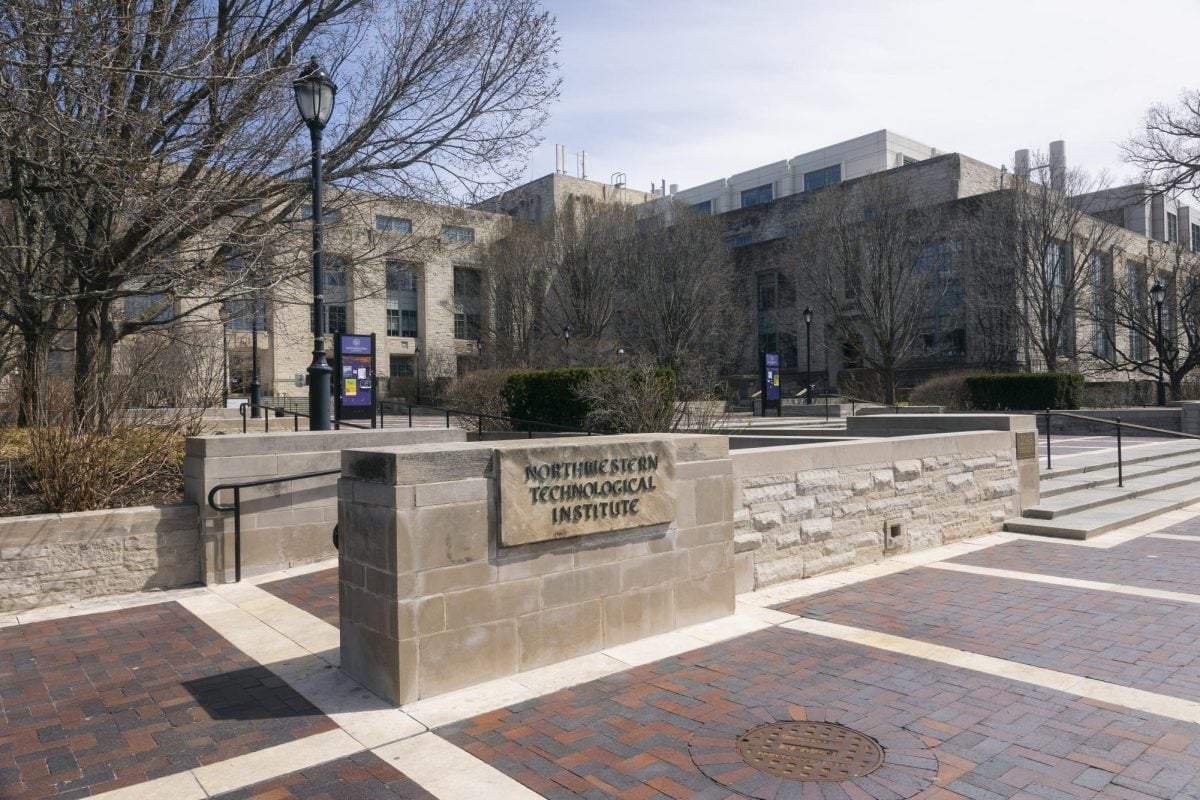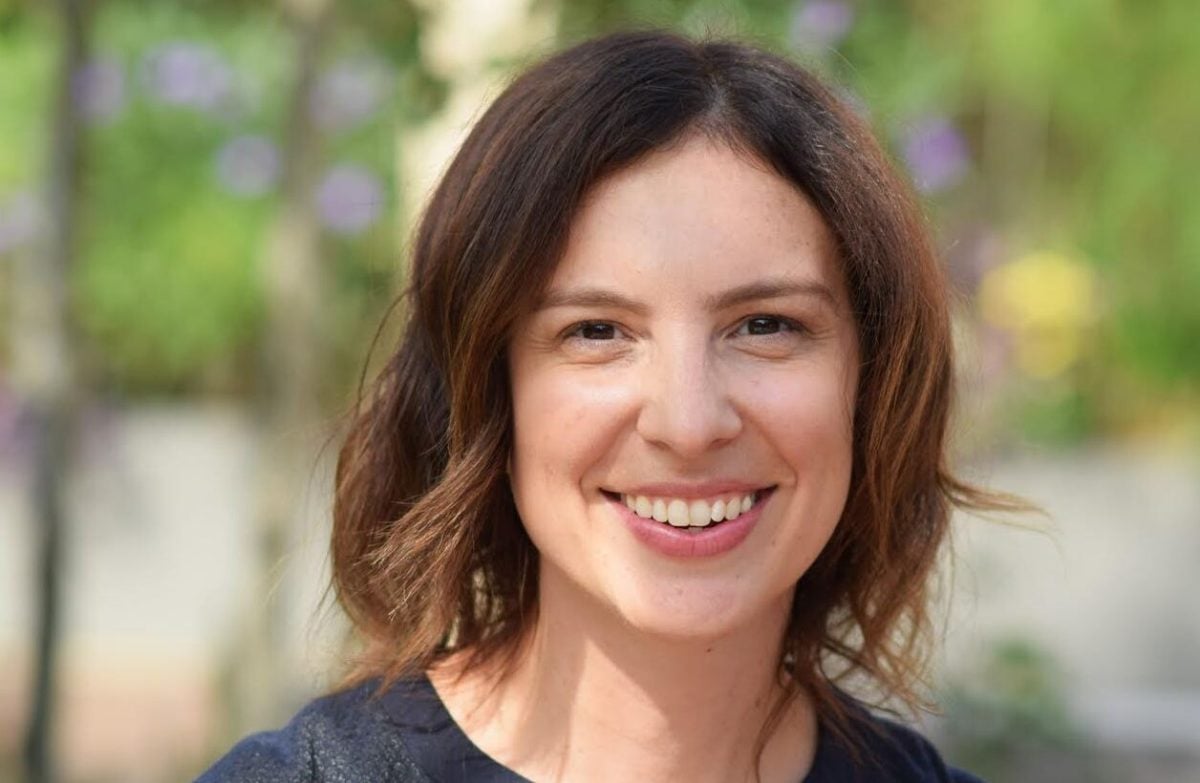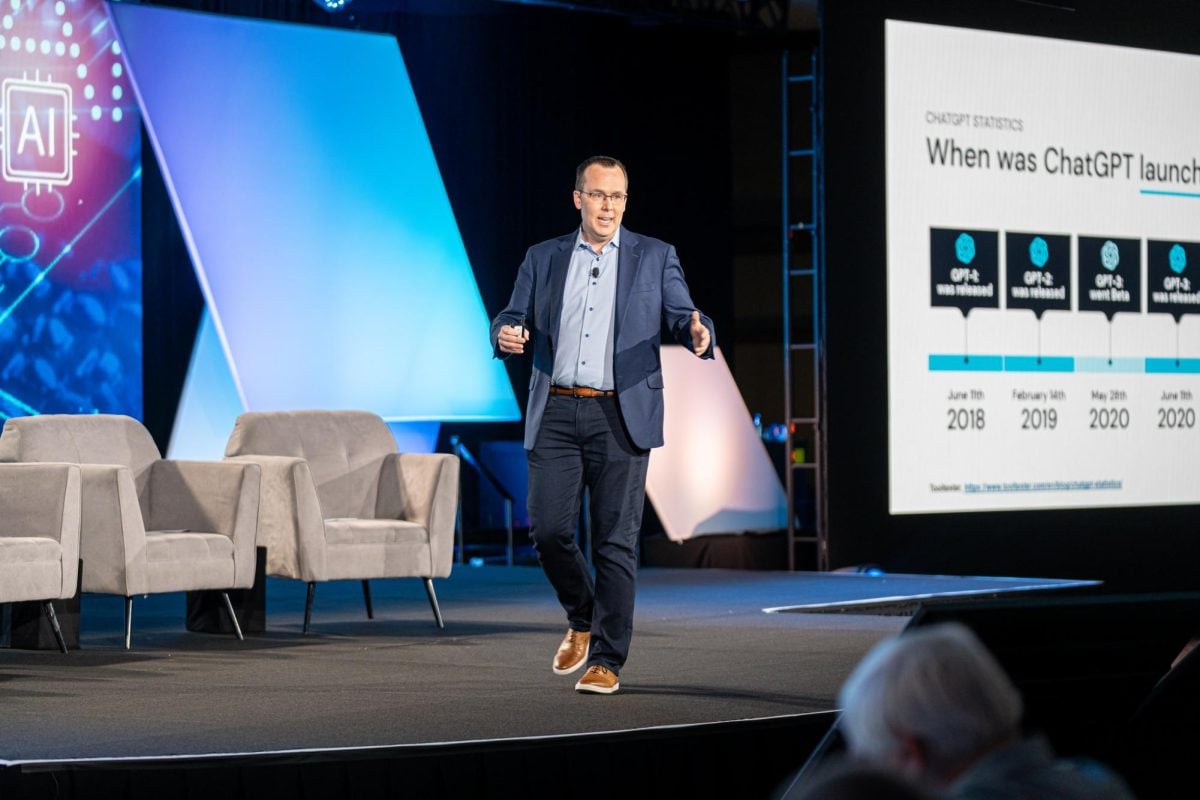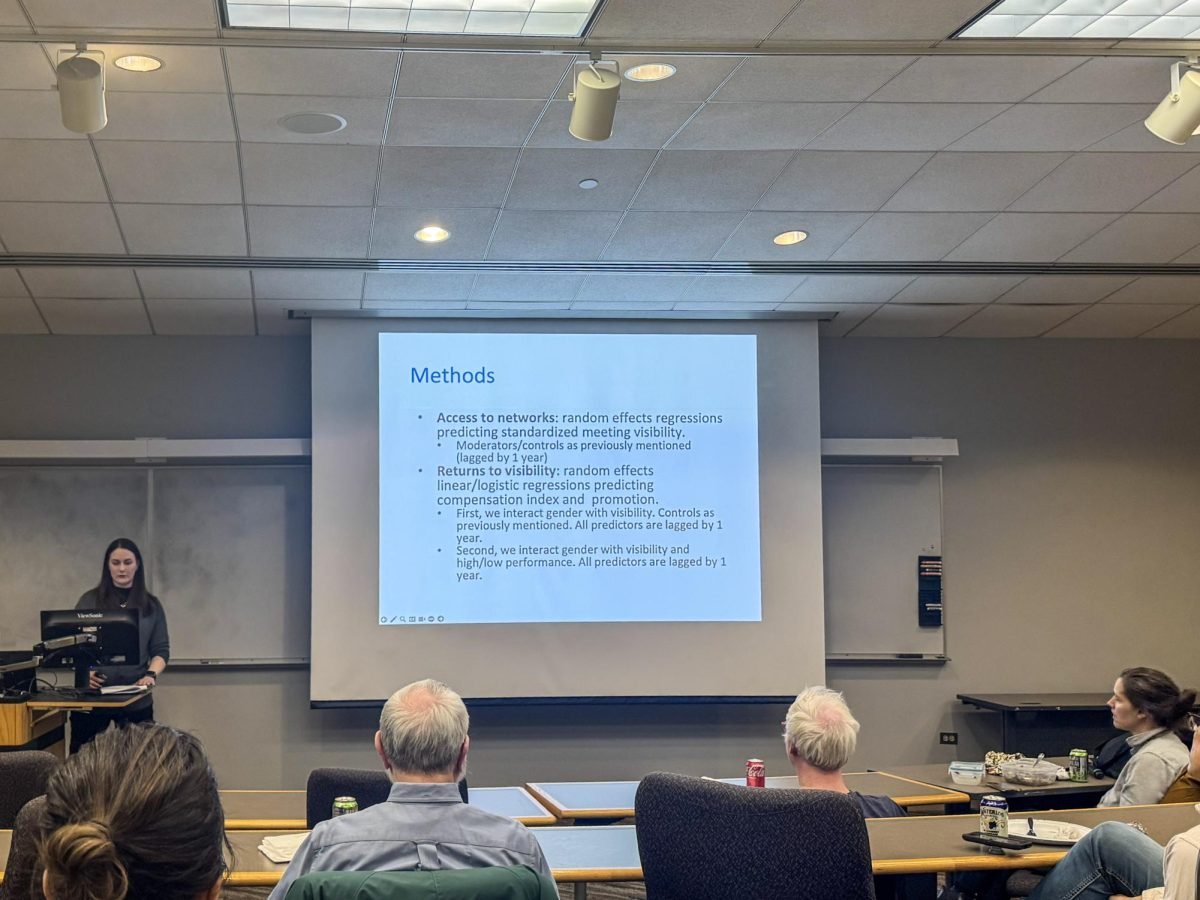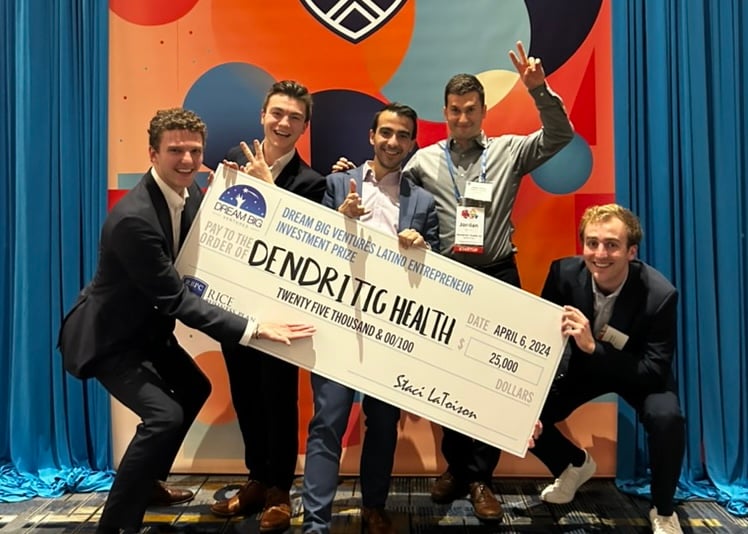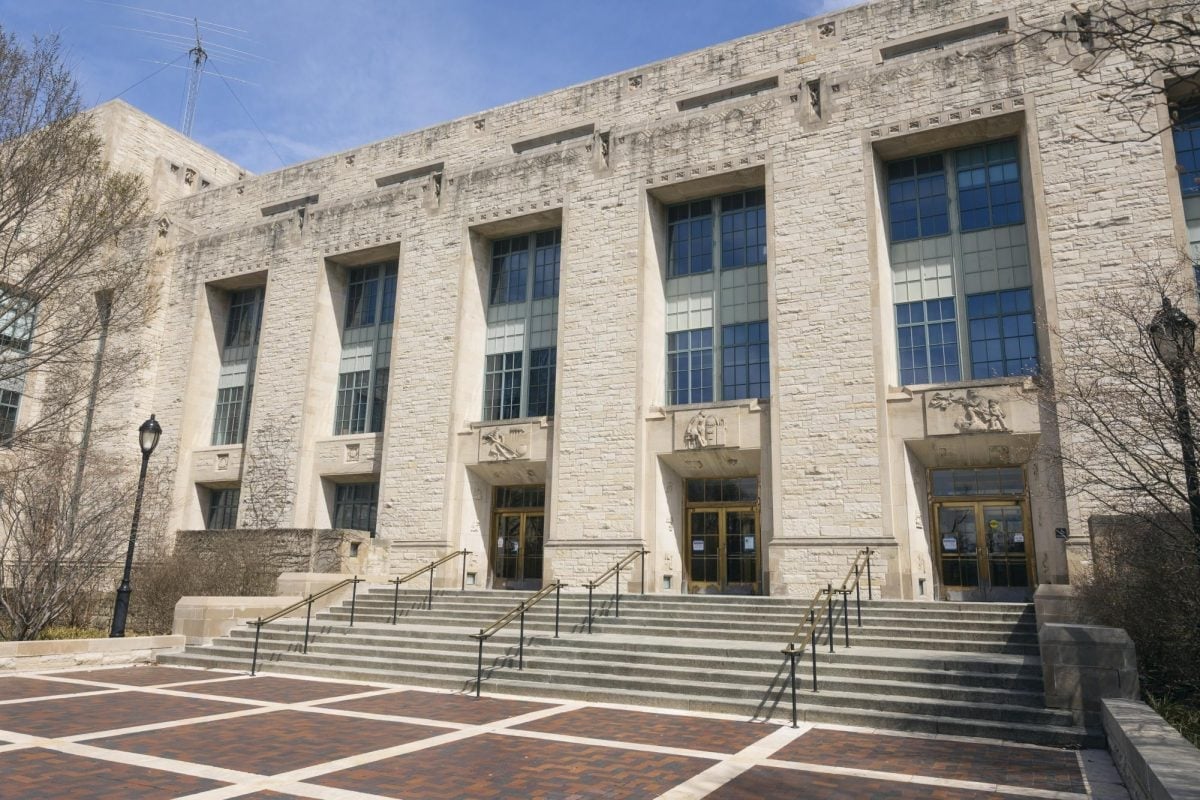McCormick freshman Alex Pereira felt stuck. She and three teammates had to build a camera stabilization for their Design Thinking and Communication class, but she said their professors did not give them useful guidance.
“They were just like, ‘Go do research,’” Pereira said. “Yeah, sure, I can Google what materials are best to use, but you can Google anything. What’s the point of going to college if you’re just being told to Google things?”
All McCormick freshmen take the two-quarter DTC sequence. Students work in groups of four on a project assignment from a local client.
Some students take the class Fall Quarter, and the rest take it Winter Quarter. They all repeat the sequence in Spring Quarter with new teams and projects.
This spring, 38 sections will open, with about 16 students in each. DTC co-Director and Prof. Alex Birdwell said about 15 to 30 faculty members from both McCormick and the Weinberg Cook Family Writing Program teach the course, depending on the quarter.
The course intends to offer hands-on building and communication experience. But some students said instructors offered insufficient technical feedback.
McCormick freshman Julia Zhao said even though building the project takes the most time, her instructor only offered concrete feedback in the brainstorming stage.
“I don’t think my professor was very helpful,” Zhao said. “When we came to them with questions, the answer they gave was very general and did not help us make a decision.”
Pereira said her design instructor asked group members to explain their decisions rather than suggesting areas for improvement. This advice was difficult to follow when their choices were based on guesses.
Students receive half a design credit and half a writing credit upon class completion, but Pereira said her writing instructor did not teach them how to improve their communication.
“In a senior capstone class, I can see how that’s great,” Pereira said. “You’ve had your education. Your professor’s just there to guide you. But for first-year students, we don’t know what we’re doing yet.”
Teaching styles vary among professors, McCormick freshman Samuel Morrissey said.
While Morrissey said he did not understand the purpose of every single assignment, his instructors offered explanations when asked.
“I’ve heard horror stories from other students, but my professors gave us a lot of opportunities,” Morrissey said. “Every single time we didn’t understand the point of a paper, they would explain the expectations better, which helped hone the understanding of what we were supposed to do.”
Zhao, on the other hand, said she wanted tasks to have clear practical benefits.
Her group built a stand to stabilize cameras in a hospital with uneven floors. After Zhao’s teammate visited the facility, the group began questioning whether their project was necessary.
“Her original words were, ‘The floor is flawless,’” Zhao said. “We just felt like, was this even a real issue? Are they just making something up to tell us?”
Birdwell said he knows many students think the class has too much “busy work.” But generating physical products from ideas gets easier with more iterations, he said.
Students must take it twice for the same reason. Birdwell said they can implement areas for improvement the second time.
“You don’t learn it really well the first time,” Birdwell said.
McCormick sophomore Kaitlyn Wang took the class last year. She said most people found paperwork repetitive.
For client interviews, Wang said groups had to provide a script of questions, a transcript and a summary. Her group repeated most of the information from one version to the next. The script also prevented organic connections with the interviewee, she said.
“It felt so robotic,” Wang said. “It felt really corporate even though we were doing a humane thing.”
Even though Wang complained about the course last year, it now helps with job recruitment. She said employers value real-world experience over technical knowledge.
Birdwell said he and Egel have spoken to alumni about ways to improve the course. Most of them said they find it frustrating in the moment but appreciate it afterward.
He said one team of alums is considering submitting a patent for their idea. When answering questions about the product, they must use documentation like meeting minutes as evidence.
“They’re now quickly seeing, ‘Oh, we should have taken some more detailed notes, but this is what we’ve got,’” Birdwell said. “It’s okay that, later, they see the value in it.”
Pereira said she does not view this work as unnecessary. She values research and background knowledge.
But she said individual efforts fall short without enough expert guidance.
“That level of work could be worth it if the learning outcomes were a little bit better,” Pereira said.
Email: desireeluo2028@u.northwestern.edu
Related Stories:
— NU engineering students take home highest honor at NASA BIG Idea Challenge
— MSAB’s Engineering Week celebrates McCormick students and clubs

